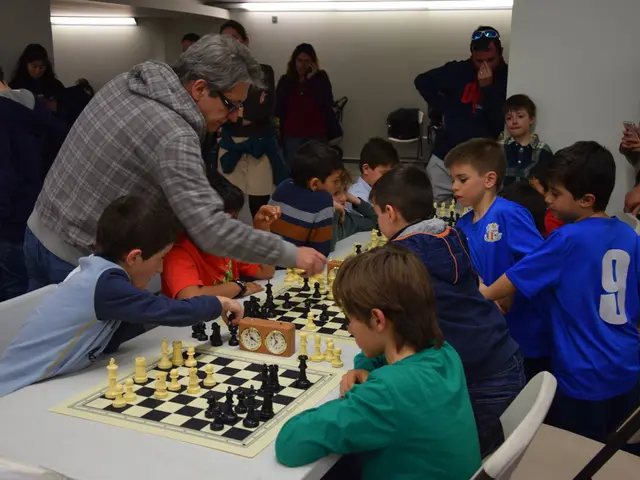Football organizations potentially face mandatory financial contributions towards the medical expenses related to brain injuries sustained by former professional football players.
Football authorities could potentially be compelled to contribute towards the medical expenses of retired players suffering from brain conditions linked to regular heading of balls, as suggested by proposed adjustments to the Football Governance Bill.
Activists are working on amendments for this bill, categorizing brain injuries caused by heading balls as an "occupational disease." This move could mandate the football industry to provide the necessary financial assistance in such cases.
The current support systems, such as the Brain Health Fund set up by the Professional Footballers' Association (PFA) with an initial £1m and supported by the Premier League, are viewed as inadequate by campaigners.
Despite the Premier League's assertion that the fund has aided 121 families with home adaptations and care home fees, the need for additional support remains a pressing issue.
Tragic examples include the late World Cup winners like Jack and Bobby Charlton, Martin Peters, Ray Wilson, and Nobby Stiles, who all passed away with dementia. Recently, former Liverpool defender Neil Ruddock joined campaigners to push for more support.
Insight: Impact of Football Related Head Injuries
While the exact number of players affected by brain conditions remains unknown, a study co-funded by the PFA and the Football Association (FA) in 2019 revealed that footballers are 3.5 times more likely to die of a neurodegenerative disease than the general public of similar age[1]. Another concerning fact is that repeated heading of footballs can cause changes in brain structure that could potentially lead to cognitive impairment[2].
Related Topics:
- Dementia
- Football
- Health
Ruddock emphasized his support for families who have experienced hardships due to these conditions. In his words, "Playing football, greatest job in the world, but nobody knew the dangers - that's scary." He further highlighted, "Every time someone heads a ball, it's got to be dangerous to you. I used to head 100 balls a day in training, wondering if it might affect my future."
Labour MP Chris Evans, among the advocates for shared responsibility in care costs, is aiming to embed a support scheme into the bill for former footballers affected by Alzheimer's, dementia, and other related conditions. Greater Manchester Mayor Andy Burnham has voiced his concern, referring to the football industry's denial regarding this issue, comparing it to the repercussions faced by miners[5].
One of the proposed amendments encourages the industry rather than the public to shoulder the financial burden[6]. This revision comes after heavy backing from prominent figures like Manchester United legend David Beckham, who voiced support for greater assistance for footballers affected by dementia in January[7].
While both the FA and the Premier League have declined to comment on the specific amendments, they have stated their commitment to improving player safety and addressing potential risk factors[8].
- The football industry, including its authorities, could be compelled to financially assist retired players dealing with brain conditions linked to regular heading of footballs, as proposed in the amended Football Governance Bill.
- In light of the proposed changes, scientific studies highlighting the link between football and neurodegenerative diseases like Alzheimer's and dementia could potentially lead to the classification of such conditions as an "occupational disease" for footballers.
- Advocates for former footballers, such as Labour MP Chris Evans and Manchester United legend David Beckham, are pushing for the industry to take a more proactive role in supporting players battling with mental-health issues, like dementia and Alzheimer's, stemming from their sports-related careers in health-and-wellness and sports, specifically football.









